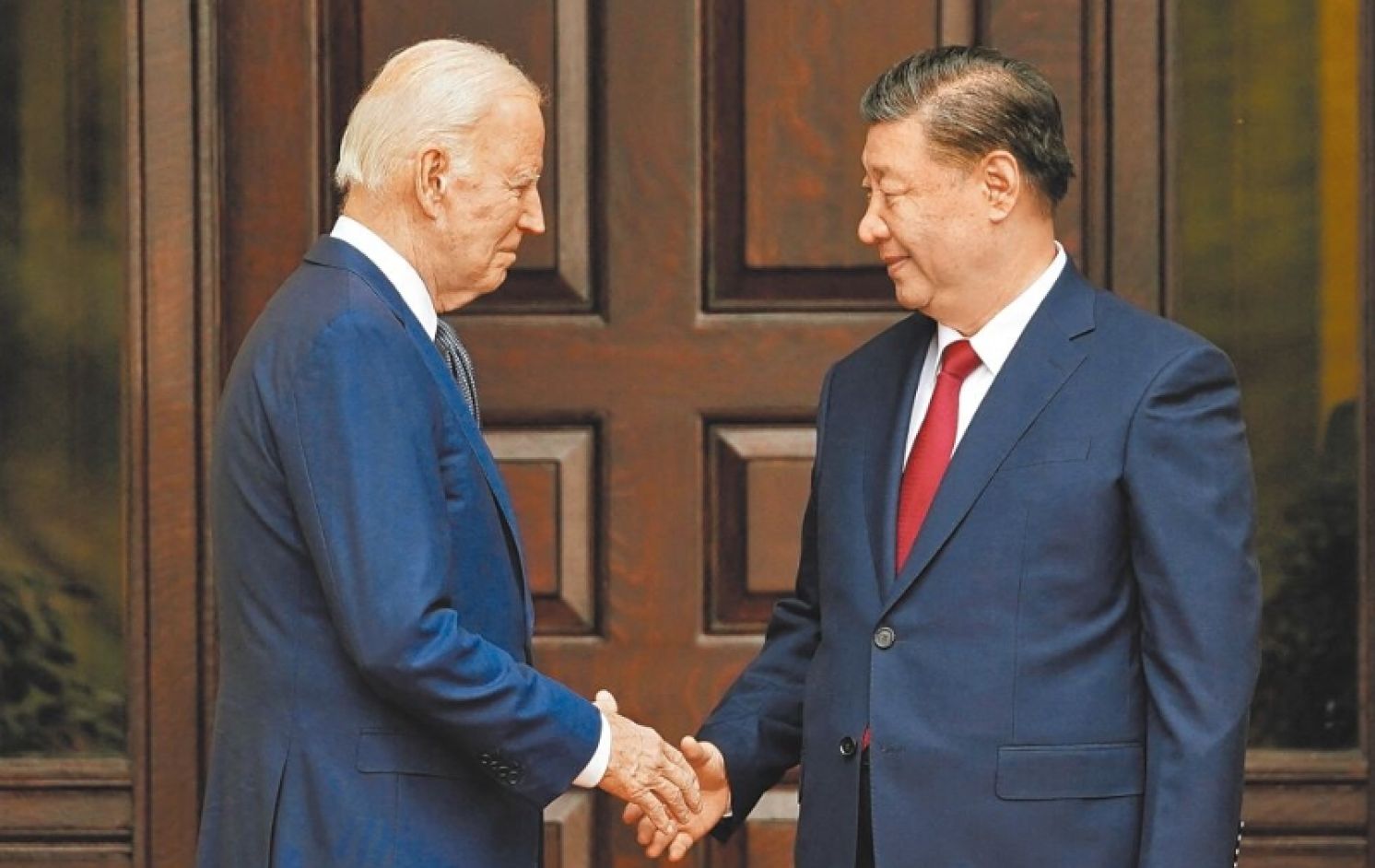
Biden and Xi Discuss Taiwan Again, Subtle Shifts in U.S. Attitude Emerge
By Kuo Chung-lun
United Daily News, November 16, 2023
The meeting between President Joe Biden of the United States and Chinese President Xi Jinping lasted four hours, involving a large-scale discussion with over 20 people, a working lunch with three pairs, and even a walk taken by the two leaders. The topics discussed were diverse, covering geopolitical issues such as the conflicts in Ukraine and Gaza, as well as the problem of restricting the precursor chemicals for fentanyl.
The Taiwan issue, however, was the central focus of this meeting. According to American officials, Mr. Xi emphasized that the Taiwan issue is always the most important and sensitive matter in U.S.-China relations. In the past, whenever the Chinese side brought up the Taiwan issue, the usual reaction from American officials was "Here you go again." However, this time is different; the United States now recognizes that if the Taiwan issue spirals out of control, it could severely damage the relationship between the two countries.
According to Xinhua News Agency's report, Mr. Xi further stated that China values the positive statements made by the United States during the Bali meeting. The United States should translate its expression of not supporting "Taiwan independence" into concrete actions by ceasing the arming of Taiwan. While the United States will not fully agree with China's demands, as relayed by senior officials, Mr. Biden, taking a firm stance, expressed that the United States is committed to maintaining peace and stability in the Taiwan Strait in the long term. The United States believes in preserving the status quo and urges China to respect Taiwan's electoral process.
Mr. Xi reiterated that reunification across the Taiwan Strait is inevitable, while the United States responded by stating its commitment to the “One China” policy.
Mr. Xi emphasized Beijing's desire for peaceful reunification but reiterated the possibility of using force. In response to Mr. Biden's mention of maintaining peace and stability in the Taiwan Strait, Mr. Xi, as conveyed, stated, "while peace is good, sometimes we need to seek a comprehensive solution." In Xinhua's coverage, Mr. Xi stressed that the United States should support China's peaceful reunification, as China will eventually and inevitably achieve reunification.
It's worth noting that during the press conference, when Mr. Biden was asked whether he would continue to uphold the commitment to defend Taiwan, there was anticipation among the media that Biden might again deviate from the strategic ambiguity policy that the United States has maintained, as in the past four instances, and reiterate the commitment to defend Taiwan. This time, however, Biden did not do so; he simply stated that the United States would maintain the “One China” policy and not make any changes.
According to American official accounts, Mr. Xi stated during the meeting that there are no plans to use force against Taiwan.
This came as a surprise to many, but it could also have been expected, given the significant reduction in tensions in the Taiwan Strait. Mr. Xi made it clear to Mr. Biden that there are currently no plans to use force against Taiwan. American officials relayed that during the meeting, Mr. Xi, with some irritation, mentioned reports in the U.S. that the People's Liberation Army intended to use force in 2027 or 2035. Mr. Xi stated that there were no such plans, saying, "Nobody told me about this." This aligns with recent emphases from the United States, including statements from the Chairman of the Joint Chiefs of Staff Charles Brown Jr. Brown spoke in Tokyo on November 10, asserting that while Mr. Xi Jinping may attempt to achieve his goals through other means, "I can confirm that Xi does not actually want to use force to take Taiwan."
The United States and China have restored military communication mechanisms, marking significant progress in the Biden-Xi meeting. During this summit, Biden emphasized the reinstatement of military communication mechanisms, stating that in the future, if either side wishes to make a call, the other will answer, calling it a "major development."
As a seasoned political figure, Biden, while not retracting his characterization of Mr. Xi as a "dictator," praised him as a straightforward person during the press conference. He recounted the 68 hours of face-to-face contact he had with Mr. Xi when they were both vice presidents. Mr. Biden emphasized the necessity of "face-to-face discussions" with Mr. Xi, highlighting the summit's role in facilitating direct communication.